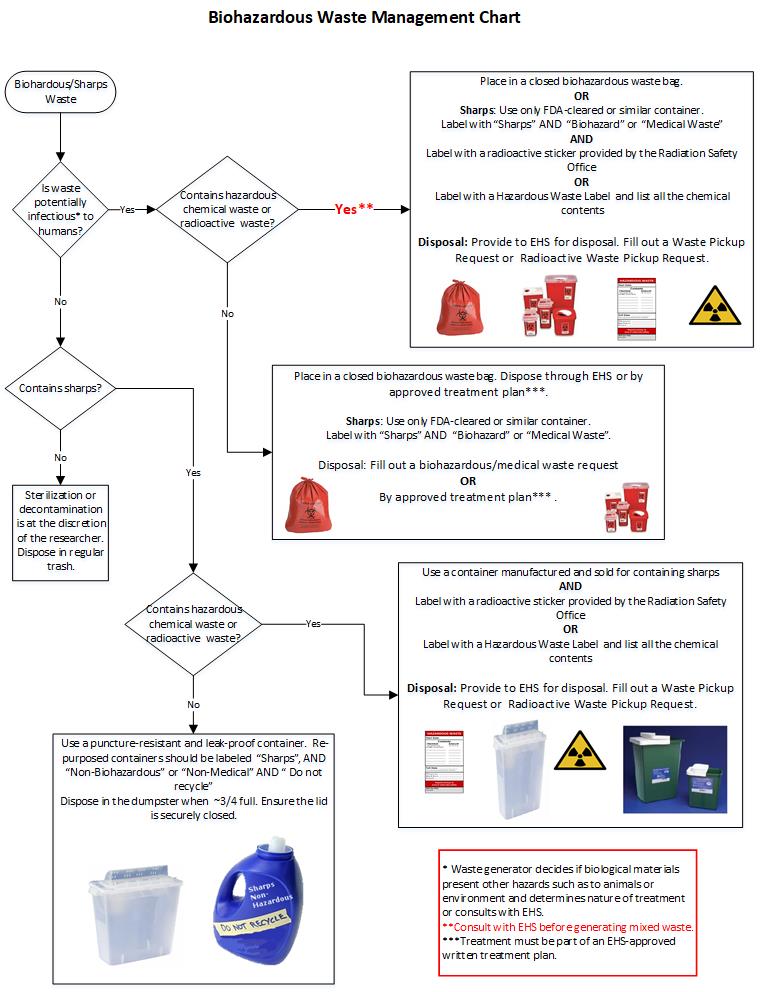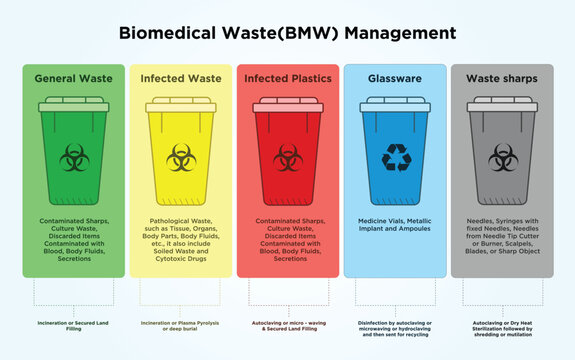Turnkey Medical Waste Removal Service: Smooth Disposal for Healthcare Facilities
Wiki Article
Making Sure Safe Handling and Disposal of Medical Waste
Ensuring risk-free handling and disposal of medical waste is of vital relevance in health care settings. Inappropriate administration of clinical waste can present substantial risks to the setting, public health and wellness, and medical care employees. In this intro, we will explore the relevance of appropriate medical waste monitoring, the dangers associated with incorrect handling and disposal, as well as the standards and approaches that can be implemented to ensure its secure disposal.Significance of Proper Medical Waste Monitoring
Proper medical waste management is of utmost significance in ensuring the safety and well-being of medical care experts, individuals, and the public. Medical waste refers to any type of waste produced by medical care facilities throughout the medical diagnosis, therapy, or immunization of human beings or animals. This waste can position severe health threats otherwise managed and dealt with correctly.
One of the main reasons appropriate medical waste administration is vital is to avoid the spread of contagious illness. Clinical waste, such as made use of needles, polluted dressings, and organic products, can bring unsafe pathogens. If not managed and taken care of correctly, these microorganisms can be sent to health care employees, people, waste trainers, and also the public, leading to the potential break out of illness.
In addition, appropriate clinical waste management aids protect the environment - medical waste disposal. Medical waste contains harmful materials, consisting of chemicals, drugs, and radioactive materials. When not handled appropriately, these compounds can contaminate soil, water bodies, and the air, posing a substantial hazard to communities and public health and wellness
In addition, reliable clinical waste monitoring guarantees compliance with global requirements and neighborhood laws. Governments and regulative bodies have actually established standards and procedures to ensure the risk-free handling, storage space, transportation, and disposal of clinical waste. Sticking to these policies is vital to prevent legal repercussions and maintain the online reputation and trustworthiness of healthcare facilities.
Risks of Improper Handling and Disposal

People can additionally be revealed to these infectious diseases if clinical waste is not effectively gotten rid of. If contaminated needles or other sharps are not disposed of in designated puncture-proof containers, they may unintentionally puncture patients, leading to prospective infections. If clinical waste is not set apart appropriately, there is a threat of cross-contamination between different types of waste, more raising the chances of disease transmission.
Inappropriate disposal of medical waste can likewise have harmful effects on the atmosphere and the public. If clinical waste is not dealt with and thrown away correctly, it can pollute water resources, dirt, and air, causing the spread of pollutants and illness. This can have long-term effects on communities and public wellness.
Guidelines for Safe Handling of Medical Waste
Implementing efficient methods for the risk-free handling of medical waste is important in ensuring the defense of health care professionals, patients, and the public. These standards are critical in minimizing the risks linked with the handling and disposal of clinical waste, such as infections, injuries, and environmental air pollution.Firstly, health care facilities should develop an extensive waste administration strategy that abides by neighborhood, nationwide, and worldwide laws. This plan should include clear directions on waste partition, product packaging, storage, transport, and labeling. It is essential to separate different sorts of waste, such as sharps, infectious materials, drugs, and non-hazardous waste, to avoid cross-contamination and advertise risk-free disposal.
In addition, medical care workers have to obtain thorough training on correct waste handling methods. They should be enlightened on the potential threats of clinical waste, the ideal use individual protective tools (PPE), and the appropriate treatments for dealing with, transferring, and getting rid of different sorts of waste.
In addition, health care centers must regularly monitor and investigate their waste management practices to ensure conformity with guidelines. This includes performing normal evaluations, evaluating waste handling procedures, and providing responses and training to team member.
Efficient Methods for Waste Disposal
To ensure the safe handling and disposal of clinical waste, it is vital to use reliable methods for garbage disposal. Medical waste can present substantial risks to public health and wellness and the atmosphere if not taken care of and gotten rid of effectively. For that reason, health care facilities and waste management companies should execute appropriate approaches to reduce these risks.One reliable technique for waste disposal is partition. It entails dividing different kinds of clinical waste based on their attributes. Partition enables for the proper therapy and disposal of each waste classification, decreasing the capacity for contamination or harm. Health care facilities ought to offer clear standards and training to team member on how to set apart waste correctly.

Moreover, medical care centers must collaborate with licensed waste administration companies to make sure appropriate disposal of clinical waste. These firms have the knowledge and tools called for to safely get rid of and manage of WasteX Medical Waste Disposal clinical waste in conformity with policies and best techniques.
Training and Education And Learning for Medical Care Professionals
Health care professionals play a critical duty in making sure the safe handling and disposal of clinical waste with detailed training and education. It is important for healthcare companies to have a deep understanding of the potential risks related to clinical waste and the appropriate protocols for its administration. By obtaining correct training, medical care professionals can lessen the prospective transmission of contagious diseases, stop ecological contamination, and secure both themselves and the public.
Furthermore, training programs ought to highlight making use of individual protective devices (PPE) and proper hand hygiene methods when dealing with clinical waste. medical waste disposal service. Healthcare specialists must recognize exactly how to correctly utilize and dispose of PPE to shield themselves from prospective exposure to dangerous products. They should additionally be enlightened on the value of routine handwashing and the correct use hand sanitizers to lessen the spread of infectious diseases
Continuing education and learning and regular updates on clinical waste monitoring techniques are crucial for medical care experts. As policies and guidelines advance, it is essential to maintain medical care providers notified about any type of adjustments in procedures and best practices. This will guarantee that they stay up-to-date and preserve a high requirement of safety in getting rid of and taking care of of clinical waste.
Verdict
In final thought, appropriate handling and disposal of medical waste is essential to make certain the safety of health care professionals, clients, and the setting. By adhering to these methods, we can mitigate the prospective dangers linked with clinical waste.Clinical waste refers to any kind of waste created by healthcare facilities throughout the medical diagnosis, treatment, or immunization of pets or people. If clinical waste is not set apart properly, there is a risk of cross-contamination in between different types of waste, further raising the possibilities of condition transmission.
It is crucial to divide various kinds of waste, such as sharps, contagious products, drugs, and non-hazardous waste, to stop cross-contamination and advertise risk-free disposal. WasteX Medical Waste Disposal.
To make sure the safe handling and disposal of clinical waste, it is vital to employ efficient strategies for waste disposal. In addition, healthcare facilities should develop a normal waste collection and transport schedule to prevent waste buildup and minimize the risk of crashes or contamination.
Report this wiki page